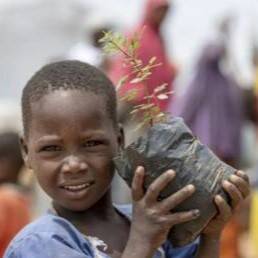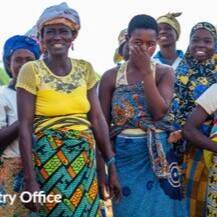The boundaries and names shown and the designations used on this map do not
imply official endorsement or acceptance by the United Nations
 | 31 | Active situation views |  | 3 | Featured situation views | 183 | Countries covered |
 Situaciones destacadas
Situaciones destacadas

Afghanistan situation
The humanitarian situation inside Afghanistan deteriorated in 2021 with significant consequences for the most vulnerable among the population. Some 3.25 million people are currently displaced by conflict. UNHCR is responding to this emergency. In Iran and Pakistan, which are neighbours of Afghanistan, there are also 2.1 million registered Afghan refugees. The majority of these refugees fled Afghanistan over the years, including from as early as 1979. A further 6.2 million refugees returned to Afghanistan in phases since 2002, but this trends has been declining in recent times. In August 2021, UNHCR has also released a non-return advisory for Afghanistan, calling for a halt on forced returns of Afghan nationals, including asylum seekers who have had their claims rejected. On this page you will find updates on UNHCR's work in support Afghan IDPs, refugees and returnees. Links are also provided below for the individual UNHCR country operation pages for additional information.
Sudan situation
Since the start of the conflict in Sudan in mid-April, large numbers of civilians have been forced to flee, including people who were already internally displaced and refugees from other countries who had sought safety in Sudan. Hundreds of thousands of people have fled into neighbouring countries or returned home in adverse circumstances – notably to the Central African Republic, Chad, Egypt, Ethiopia and South Sudan. Others self-relocated within Sudan.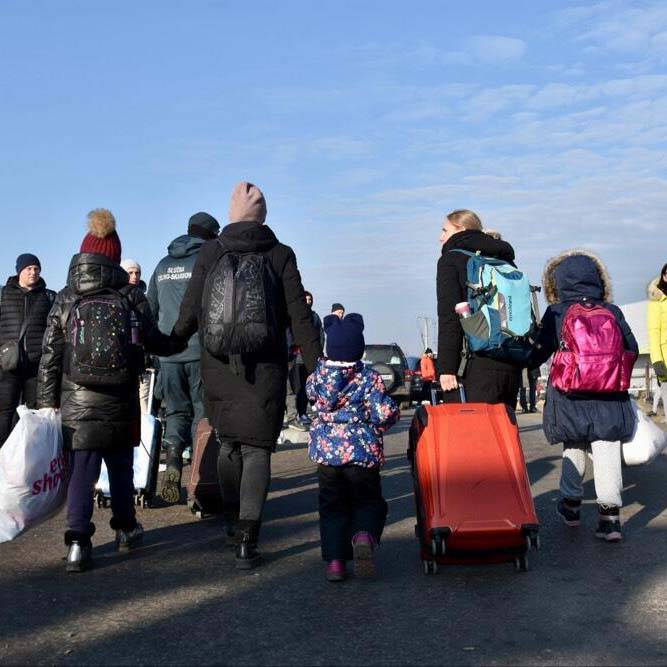
Ukraine Refugee Situation
The full-scale invasion of Ukraine in February 2022 has caused massive civilian casualties and the destruction of civilian infrastructure, forcing people to flee their homes seeking safety, protection and assistance. Since February 2022, millions of refugees from Ukraine have crossed borders into neighbouring countries, and millions more have been forced to flee within the country. They are in need of protection and support. In light of the emergency and the scale of humanitarian needs, an inter-agency regional refugee response is being carried out, in support of the efforts of refugee-hosting countries. The Regional Refugee Response Plan brings together national authorities, UN agencies, NGOs, as well as civil society organisations and focuses on supporting host country governments to ensure the inclusion of refugees, with full access to their rights, in line with international standards. It also prioritizes the provision of critical protection services and humanitarian assistance. Todas las situaciones
Todas las situaciones

Burundi Situation
Over 300,000 refugees have fled Burundi to the Democratic Republic of the Congo, Rwanda, Tanzania and Uganda since April 2015. The situation in Burundi remains complex; while refugees continue to arrive throughout the region, others are deciding to return home. The Burundi refugee response remains one of the most underfunding refugee situations in the world.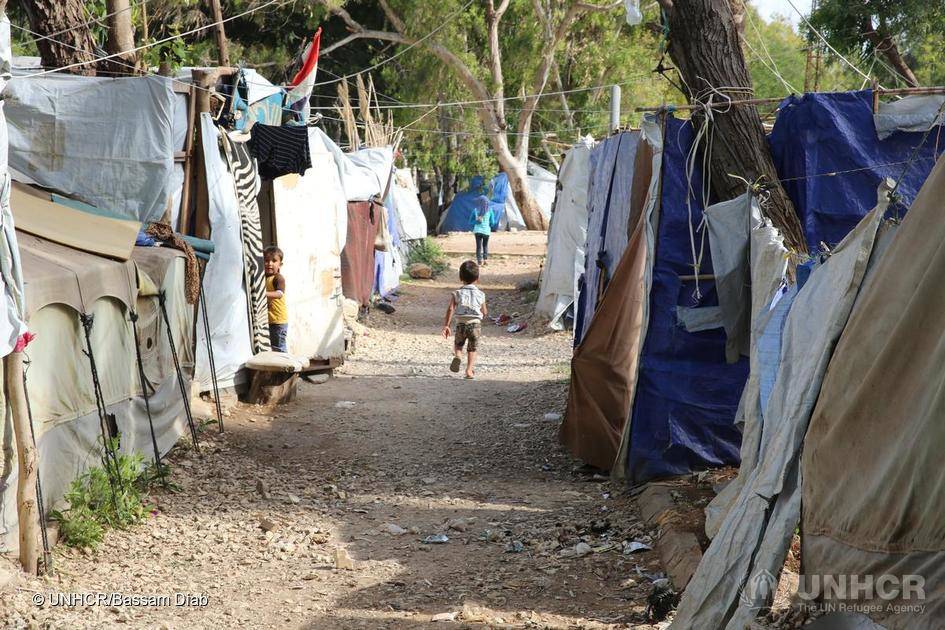
CCCM Northern Syria Overview
Highlighting the internal displacement in Northern Syria
CCCM Somalia Overview
Highlighting the internal displacement in Somalia
Central African Republic Regional Response
The dire crisis in the Central African Republic continues to trigger massive forced displacement, increasing pressure on resources and living conditions in host communities and countries. Intense militia activity and inter-community violence hampers humanitarian access and exposes civilians to serious protection risks. According to OCHA, CAR remains the country with the highest humanitarian needs per capita, with 50 per cent of the population having to rely on humanitarian assistance to survive, while 25 per cent is displaced either internally or in a neighbouring country.
Situación de Centroamérica & Mexico
El desplazamiento forzado en la región continúa creciendo en números y complejidad. La violencia de maras y pandillas, la persecución y violaciones de derechos humanos no le han dejado más opción a unas 720,000 personas del Norte de Centroamérica que huir, ya sea internamente o a través de fronteras. La crisis socio-política en Nicaragua desde abril de 2018 ha forzado a más de 100,000 ciudadanos a buscar protección a países vecinos. ACNUR ha expandido su presencia y capacidad operacional en años recientes para fortalecer alternativas de protección y facilitar soluciones para aquellos afectados for el desplazamiento forzado.
Central Asia
The UNHCR Representation to Central Asia is managing UNHCR activities across the Republic of Kazakhstan, the Kyrgyz Republic, the Republic of Tajikistan, Turkmenistan, and the Republic of Uzbekistan. Since their independence in 1991, Central Asian countries have generously sheltered thousands of people fleeing war, persecution, or human rights violations. Central Asia was also home to a considerable stateless population – largely a result of the dissolution of the Soviet Union in 1991.
DRC Situation
The on-going conflicts in the Democratic Republic of the Congo (DRC) have caused and continue to cause internal and external displacement of populations. In 2017, some 100,000 Congolese fled to neighbouring countries as refugees, due to widespread militia activities, unrest and violence, joining the 585,000 already in exile. The security conditions in DRC, especially in the eastern and central parts have continued to worsen since the beginning of 2018. Because of this, the Congolese refugee population is now among the ten largest in the world. Nearly 55 per cent are children, many crossing borders unaccompanied or separated. Existing camps and sites in many asylum countries are saturated, and available basic services are stretched to the limit. The situation requires support, adequate resources and collaboration so that effective protection and assistance can be delivered efficiently to Congolese refugees.
Eradication of Statelessness in the Eastern and Southern of Africa Region
Highlighting statelessness in the 12 Member States of the ICGLR, and what is being done to eradicate it. Media coverage, testimonies of stateless persons, reports on the issue and all documents pertaining to the Brazzaville Declaration process can be consulted in English, French, Portuguese and Arabic.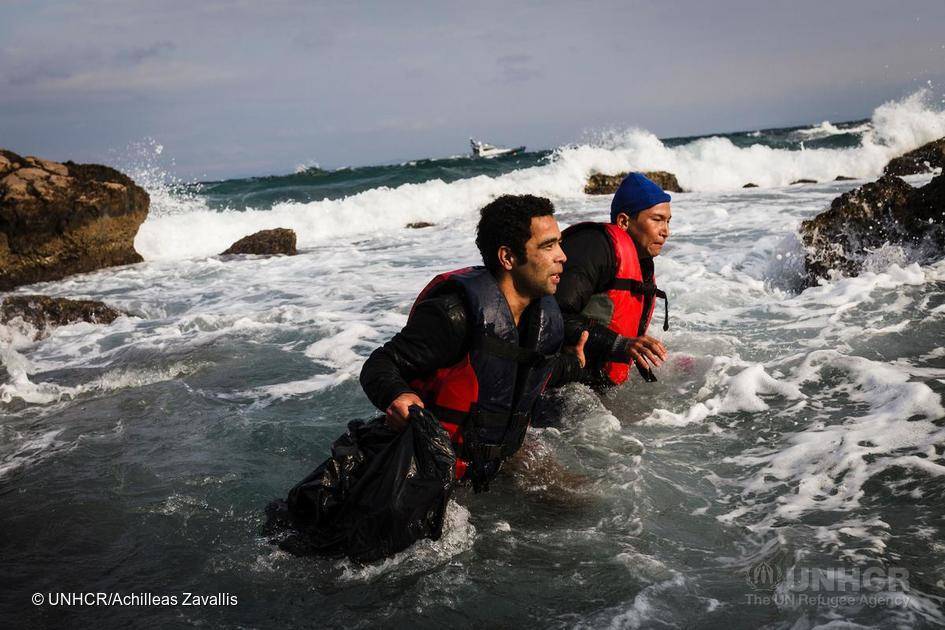
Europe Sea Arrivals
Persecution, conflict and poverty forced over 1 million people to flee to Europe in 2015. Many came seeking safety for themselves and their families, risking their lives and facing a treacherous journey
Horn of Africa Somalia Situation
Somalia is at the heart of one of the worst humanitarian crises in the world today. Twenty years of conflict and waves of drought have uprooted a quarter of the country’s 7.5 million people. As the region faces its most severe drought in 60 years, the Somali exodus is growing fast. The refugees urgently need medical aid and high-protein, high-energy food. They also need clean water, shelter and basic services in the camps.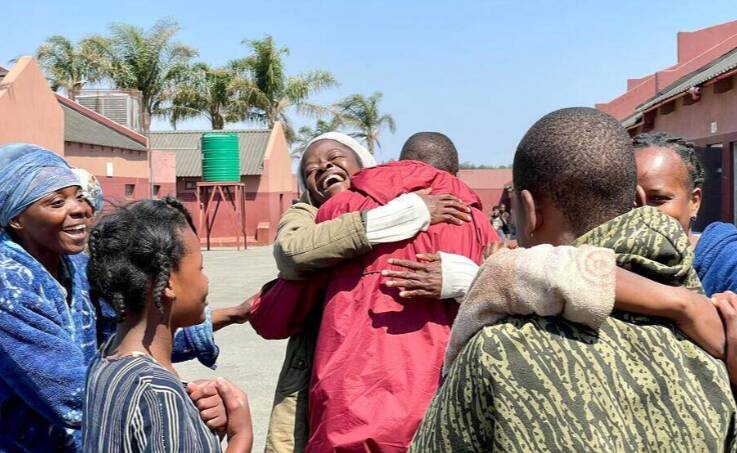
Multi Country Office (MCO) South Africa
In 2020, the South Africa Unit in the former Regional Office for Southern Africa became the South Africa Multi-Country Office (SAMCO) based in Pretoria, South Africa. SAMCO covers nine countries: Botswana, Comoros, the Kingdoms of Eswatini and Lesotho, Madagascar, Mauritius, Namibia, Seychelles and South Africa.
Myanmar Situation
The humanitarian situation inside Myanmar has deteriorated further since February 2021 as a result of increased conflict within the country and its political upheaval. According to UN sources, about 3m people are displaced internally within Myanmar as of 1 May 2024, with the majority in the Northwest, in Rakhine State and in the Southeast, as well as in Kachin state in the Northeast. UNHCR is working as part of a wider humanitarian response to internal displacement inside Myanmar, though humanitarian access remains constrained in many areas. In addition to a growing number of IDPs in Myanmar, thousands of refugees are estimated to have sought safety in neighbouring countries since 1 February 2021. This new displacement comes on top of a protracted refugee situation in the region comprising of refugees from Rakhine State’s Rohingya community, of whom majority are currently protected in Bangladesh, with smaller numbers in Malaysia and India. Other refugees and asylum-seekers from Myanmar are also located in Thailand, Malaysia, and India. On this page you will find updates on UNHCR's work in support of all Myanmar IDPs and refugees. Links are also provided below for other resources and pages for the Myanmar situation response.
Nigeria Situation
Northern Nigeria’s conflict with Boko Haram spilled over to the Lake Chad Basin region, where Nigerian refugees are hosted since 2014, causing large scale forced displacement and an unprecedented humanitarian emergency in Cameroon, Chad and Niger.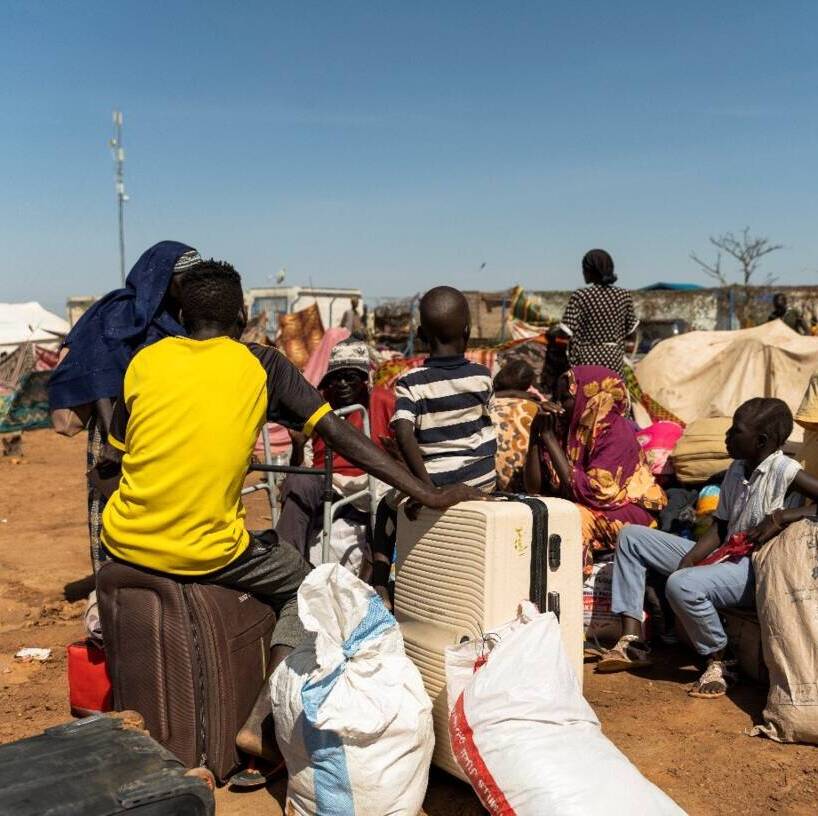
Route-Based Approach
The Route-Based Approach is a strategic, holistic, cross-border framework to assist States in responding more effectively and predictably to the challenges of mixed movements of refugees and migrants in line with their international obligations. It engages States to ensure international protection and solutions for refugees, while upholding rights and creating opportunities for migrants, along key routes. It proposes a set of comprehensive, targeted and coordinated interventions to be taken by States, UNHCR, IOM, other UN agencies, civil society partners, migrant and refugee organizations and other stakeholders, along main routes in countries of origin, asylum, transit and destination.
Sahel Crisis
The Central Sahel region (Burkina Faso, Mali and Niger) is facing a severe humanitarian and protection crisis, pushing millions of people to flee their homes. Indiscriminate attacks by armed groups against civilians, summary executions of men, widespread use of rape against women, as well as attacks on State institutions, including schools and health facilities, are the latest drivers of displacement impacting a region already struggling with climate change, extreme poverty, a lack of economic opportunities and scarce basic services.
South Eastern Europe
Following the de facto closure of the so-called Western Balkans (WB) route in March 2016, severe border policies led to fragmentation of the mixed flows of migrants and refugees through the South East Europe (SEE), opening new smuggling pathways in parts of WB that had not been affected so far. In addition to the shift in movement patterns, the intensity of migration has also substantially augmented throughout the region. Still, the majority of new arrivals view the SEE as a transit region for their journey to final destinations in the northern and western EU.
South Sudan
As the protracted emergency enters its sixth year, the South Sudan situation remains the largest refugee situation on the African continent. There are over 2.2 million refugees in Sudan, Uganda, Ethiopia, Kenya and the Democratic Republic of the Congo and a further 1.8 million people displaced internally in South Sudan. The situation continues to be characterized as a children’s crisis with children constituting over 65 percent of the refugee population.
Syria Regional Refugee Response
Over 5.6 million refugees have fled Syria since 2011, seeking safety in Turkey, Lebanon, Jordan, Iraq, Egypt and beyond. After almost six years of war in Syria, refugee vulnerabilities and poverty are on the rise, the impact on host communities continues to grow, and funding for the humanitarian response is not keeping up with the needs
UNHCR CORE
CORE is UNHCR’s solution for establishing recognizable, branded, predictable and consistent information products in the early days of an emergency response. The goal is to establish UNHCR’s leadership and coordination role in refugee emergencies by releasing quality products.

